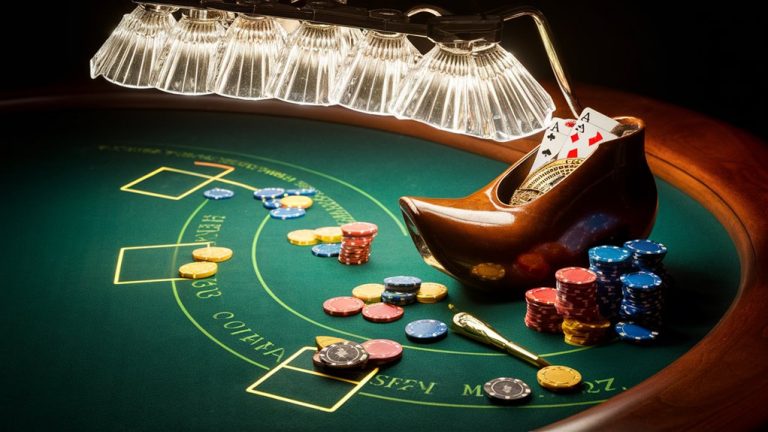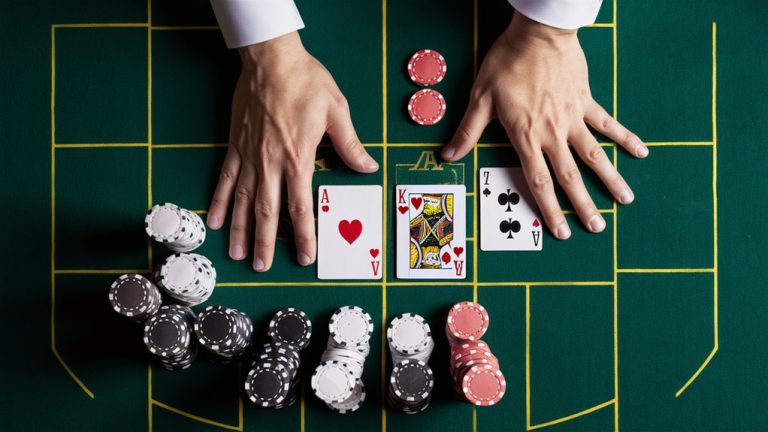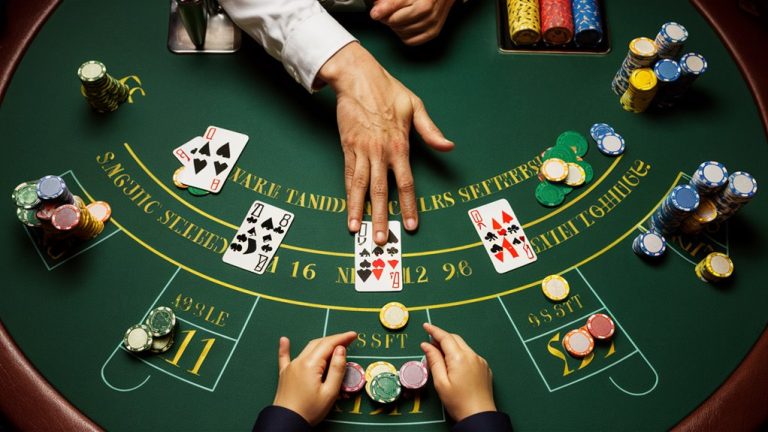
From Beginner to Pro: Boosting Your Gambling IQ

Learning to gamble well means getting good at five main skills that make pros different from fun players. Starting off means knowing how to figure out odds, which lets players spot real chances over false hopes.
Handling your money is a big part of pro gambling. Setting up firm money rules, like keeping bets to 1-2% of your total money, helps fight against ups and downs and keeps you in the game for longer. 이 내용을 꼭 확인해보세요
Staying smart and in control makes a big difference between new and pro players. Top gamblers stop common thinking errors, especially the gambler’s fallacy and being too sure of themselves, which often trip up new players.
Picking the right games takes a lot of thought about math benefits and what skills you need for different gambling types. Pros always pick games where they know they have an edge and avoid the bad ones.
A solid plan brings these parts together, mixing risk checks, money safety, cool heads, and sharp game choices. This full plan helps players make the best moves all the time and climb from beginner to pro.
By really sticking to these pro gambling rules, players get better at deep analysis and keeping a cool mind—must-haves for winning in tough gaming spots.
Grasping Simple Odds Ideas
Getting Odds Right in Gambling
Basic Odds Know-how
Before you gamble, being good at basic odds ideas is key for smart choices.
Odds thinking lays down the math that helps players weigh risks and what might happen.
Odds and Their Numbers
Odds numbers always range from 0 to 1, often shown as percentages.
For instance, throwing a certain number with a regular six-side die gives an odds of 1/6 (16.7%). This basic rule is true for all gambling, from easy dice to tough card tactics.
One Event vs Another
Knowing if events change each other is key for smart play:
- One event: Games like roulette where what comes next doesn’t change from past plays
- Many events: Card games like blackjack where what cards came out before change what might come next
Value Guessing
Expected value (EV) figuring is a core tool for smart betting:
- How to do it: EV = (Chance of Winning × Might Win) – (Chance of Losing × Might Lose)
- Example: A $10 bet with 40% win chance for $30 gives EV = (0.4 × $30) – (0.6 × $10) = $2
This smart math helps see if a bet will pay off over time.
Academy of Money Safety
Money Safety for Long-term Gambling
Ruling Your Budget
Money handling turns chance math into lasting gambling wins.
Start a fund just for gambling – only use cash you can lose without hurting daily life. This split money safety idea backs up careful gambling habits.
Best Bet Sizes and Staying Safe
Try a true bet size plan by splitting your money into 100-200 parts.
Keep a tight rule by limiting single bets to 1-2% of your whole budget. For a $2,000 budget, smart bet sizes range from $10-20 per play, giving you a cushion against changes while boosting long-term win chances.
When to Stop and When to Take
Safe risk steps need clear stop loss limits and win targets. Use a firm stop-loss rule with no breaks when you hit the max drop levels.
Smart win-taking locks in gains during good times. Full bet tracking and outcome reviews show betting styles and chances to get better.
Good money tips form the base of long winning at games, safe from drops no matter the theoretical edge.
Staying Safe With Money:
- Separate gambling funds
- Bets based on units
- Firm loss stop rules
- Always tracking performance
- Smart win-taking
- Always making your plans better
Math Bet Tips
Getting Math Odds in Gambling
Turning Odds to Numbers
Math odds are more than simple bet lines – they show the deep chance layout of gambling results. Turning odds to percentages gives deep insights for clever choices.
Must-Know Odds Math
Decimal odds math: 1/decimal odds x 100
Part odds math: denominator/(denominator + numerator) x 100
US odds math:
- Plus odds: 100/(odds + 100) x 100
- Minus odds: |odds|/(|odds| + 100) x 100
Guessing Worth in Bets
Seeing how showed chance and true chance match up opens smart betting chances. For instance, odds of -150 mean a 60% shown chance. When your own chance guess goes over the shown odds, bettors spot good bet spots.
Top Math Uses
Turning odds forms to standard percentages lets:
- Pin down correct risks
- Spot market wrong thoughts
- Compare chance across different betting kinds
- Figure out likely gains
- Work out gain-to-risk numbers
Through smart math, bettors turn plain odds to useful chance facts, making bet choices based on good numbers, not just gut feels.
Smart Bet Thoughts
Smart Bet Thinking: A Plan for the Mind

Knowing the Mind Game
While chance math lays the groundwork for bet plans, your mind play eventually sets how well you do over time.
Mind strength and cool heads split often winning bettors from those who don’t do well, no matter their math skills.
Keeping Cool While Betting
Staying unhooked is key to keeping bet discipline. Winning bettors set up firm money rules through:
- Set loss limits
- Clear win aims
- Strong plan sticking
- Planned decision methods
Spotting Mind Errors
Getting and beating mind slips is key for smart betting. The most risky ones include:
- Gambler’s mistake
- Hot hand mistake
- Yes bias
- Outcome slip
Pro Money Rules
Build a planned way to betting money by:
- Keeping gambling cash separate from personal money
- Not betting when stressed
- Keeping close tabs on betting moves
- Following set risk steps
Keep in mind, winning at bets means treating each choice as a standalone math chance, free from mind games or thought errors.
Picking the Right Games
Picking Smart: Winning More at the Casino
Knowing Game Math and Odds
Choosing games is key to good gambling outcomes. This process needs careful thought of many bits before you go for any casino game.
Math edge is the main thing to think about, with games like blackjack and video poker giving better odds than slots or keno when you use good plans.
Skill Checks and Game Needs
Testing Your Skill
Skill-focused games like poker demand a deep look at what you can do. Winning a lot rides on player skill, smart thinking, and how much you know.
Before jumping into these games, a full check of personal skills is vital for the best results.
Essential Money Needs
Right money needs are key for picking games. The suggested method includes keeping at least 40x the smallest bet for table games.
For instance, a $25 smallest blackjack table calls for a $1,000 money to play well enough.
How Game Speed and Fit Matter
The Speed of Play Count
How fast a game goes really shapes how long your money lasts and how well you can think. Slower games like baccarat give more time for smart thinking and money care, while quick games like slots may use up money fast.
Matching Games to You
Good game picking fits with personal:
- Risk likes
- Smart skills
- Money limits
- Play style wants
These bits mix to create the best game setting to fit personal needs and skills.
Usual Mind Slips in Gambling
Mind Slips in Gambling: Know the Traps
The Mind Behind Betting Choices
Mind slips really shape how you gamble, working deep down while changing how you make choices.
Knowing these mind patterns helps players see and beat likely bad gambling moves.
Main Gambling Mind Slips
The Gambler’s Error
Chance stays the same no matter past results. Thinking past plays change future lone events leads to bad bet choices.
For example, many reds in a row in roulette don’t make black more likely next.
Yes Bias in Betting
Players often recall wins more than losses, twisting how well they think they do at gambling.
This picking memory backs up bad habits and stops true checks of how you’re doing.
The Costly Past Bet Trap
The costly past bet slip shows when gamblers keep betting to get back what they lost, not seeing that past money shouldn’t change what they do now.
This leads to bigger losses and trouble in how you handle bets.
Too Sure of Yourself
Too sure thinking makes players think they know more than they do about chances or making winning moves.
This mind slip mainly hits skilled players who might think too much of their know-how in games of chance.
Easy to Think of Bias Hit
New or big past gambling wins make an easy to think of bias, making players think such things will happen a lot.
This changes how they bet and see risks.
Fearing Losses More
The hurt of losing often hits harder than the joy of winning, creating fear of losing acts.
This mind slip often leads to chase betting and other risky moves aimed at getting back what was lost.
Choosing Smarter Gambling Moves
Knowing these mind slips helps for more clear choice-making and keeps gambling under control.
Seeing these mind traps is key for making smart risk steps and keeping gambling safe and sound.
Better Risk Checks
Better Risk Checks for Smart Gambling
Getting Risk Rules Right
Risk checks in gambling need a planned way to weigh possible outcomes and make the best choices.
Pro gamblers use smart methods to keep their money safe while trying for the best returns.
Must-Know Risk Methods
How Likely to Lose It All
Handling your money starts with working out your Risk of Ruin – the chance of using up all your gambling cash.
The 5% rule is a basic guide: never put more than 5% of all your money on single bets. This careful way gives needed safety during sure bad runs.
Using Kelly’s Rule Right
The Kelly Rule figures the best bet size by looking at your edge in stats and betting odds.
Most winning players use a part Kelly plan (1/4 to 1/2) to cut swings while keeping good long-run win chances.
Plans to Stop Losses
Setting firm stop-loss limits and win-target aims builds a disciplined frame for each gambling time. Set clear lines:
- Stop-loss: 20% of session money
- Win goal: 50% of starting cash How to Play Casino Games Like a Pro
These set lines cut out mind-based choices and guard your cash during times with bad luck.
Smart Ways to Cut Risks
- Work out likely gains for each bet chance
- Watch how your money goes up and down carefully
- Change how much you bet based on your edge in stats
- Keep track of results for checking how you do
- Keep firm during bad runs




